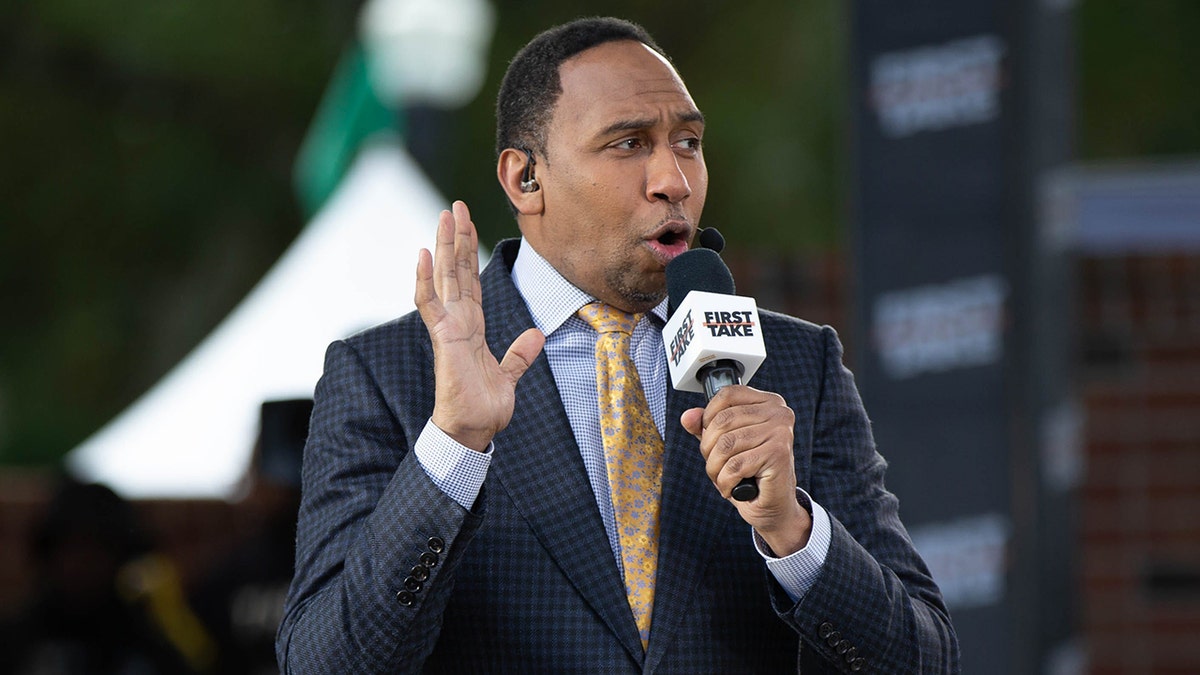With his characteristic unfiltered approach, Smith has once again demonstrated why he is considered one of the most influential voices in sports media.

At the heart of the controversy lies a complex narrative of success, visibility, and the challenging dynamics of emerging talent in professional women’s basketball.
Caitlin Clark has become more than just a player; she’s a cultural phenomenon that has transcended traditional sporting boundaries, attracting unprecedented attention and fanbase engagement.
Smith’s commentary cuts deep into the underlying tensions that have been simmering beneath the surface of the WNBA’s professional ecosystem.
He argues that the jealousy directed towards Clark is not merely about her on-court performance, but about the massive cultural impact she has generated in an incredibly short period.
The popularity disparity is stark and undeniable. Clark has single-handedly transformed the landscape of women’s basketball, drawing massive crowds, generating unprecedented media coverage, and creating a level of excitement that the league has rarely experienced before.
Her ability to attract fans who traditionally might not have followed women’s basketball is unprecedented.
What makes Smith’s critique particularly potent is his unflinching approach to calling out what he perceives as professional jealousy. He suggests that some WNBA players are more focused on Clark’s popularity than on elevating their own game and contributing to the league’s growth. This perspective has struck a nerve within the basketball community.
The economic impact of Clark’s presence cannot be overstated. Ticket sales, merchandise, and media rights have seen exponential growth directly attributed to her arrival in the league.
This economic transformation has created a tension that goes beyond simple athletic competition, touching on deeper issues of recognition and opportunity.
Smith argues that true professionals should celebrate Clark’s ability to bring attention to women’s basketball rather than resent her success. He points out that her popularity is not a threat but an opportunity for the entire league to grow, attract more fans, and increase overall visibility and economic potential.
The racial and cultural dynamics underlying this conversation cannot be ignored. Clark’s success has brought to the forefront complex discussions about representation, media coverage, and the ways in which different athletes are perceived and celebrated. Smith doesn’t shy away from these nuanced conversations, instead confronting them head-on.
Social media and fan engagement have amplified the narrative surrounding Clark. Her massive following has created a level of scrutiny and attention that few athletes experience so early in their careers. This unprecedented visibility has both elevated her status and created a target on her back.

What emerges from Smith’s commentary is a broader critique of professional sports culture. He suggests that the jealousy towards Clark represents a larger issue of how emerging talents are received, particularly when they challenge existing power structures and narratives within a sport.
The economic and cultural implications extend far beyond the basketball court. Clark has become a symbol of potential transformation in women’s sports, challenging existing models of athlete marketing, media representation, and fan engagement. Her success is not just about basketball; it’s about broader cultural shifts.
Smith’s commentary serves as a powerful reminder of the importance of supporting and celebrating emerging talent. He argues that the energy spent on jealousy could be better directed towards personal growth, skill development, and collective league advancement.
The WNBA finds itself at a critical juncture. Clark’s arrival has exposed both the tremendous potential for growth and the internal challenges that the league must address. Her popularity has created a moment of reckoning that goes beyond individual performance.
What becomes clear through Smith’s analysis is that the issue is not about Clark herself, but about the broader ecosystem of professional sports. It’s a conversation about opportunity, representation, and the ways in which talent is recognized and celebrated.

As the debate continues to unfold, one thing remains certain: Stephen A. Smith has once again proven his ability to cut through the noise and address the most challenging conversations in sports.
His commentary on the jealousy towards Caitlin Clark is more than just a hot take – it’s a profound commentary on the current state of women’s professional basketball.


